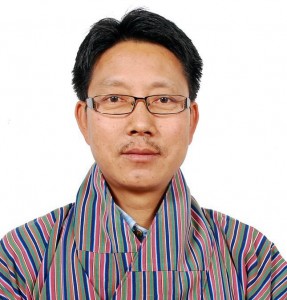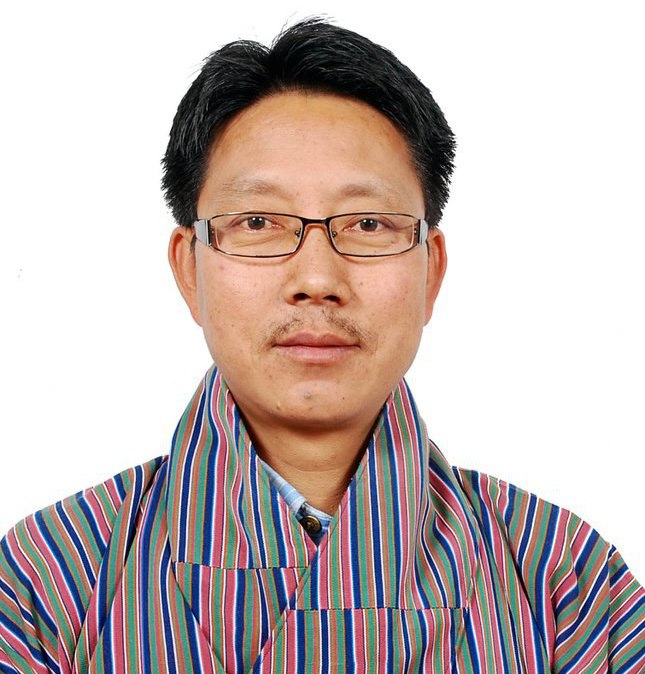Things to do…. on the home front
Home minister Damcho Dorji takes time out to respond to Kuensel on some of the immediate issues confronting the ministry.
Lyonpo Damcho Dorji, who served as one of the opposition members during the first Parliament, is also National Assembly representative of Goenkhatoe-Laya constituency in Gasa.
 As the home minister, what is your priority for now?
As the home minister, what is your priority for now?
To ensure that the security of the country is protected and law and order maintained at all times. Preservation and promotion of our unique tradition and culture calls for coordinated efforts from all quarters so that they can evolve with changing trend of modernisation. Greater decentralisation of powers and responsibilities to the local governments and building their capacities to take over these responsibilities will be given more importance, in accordance with the party ideology. We’ll prepare ourselves for any natural or man-made calamities, while praying to our deities that no disasters will occur in the country.
How many people are deprived of citizenship card? Many have also pinned their hopes on the new government, since it had pledged to resolve the issue …
Citizenship issues can be resolved only if we find a lasting solution to the problem of continuing illegal immigration into our country. The challenge will be even greater as we become more prosperous, coupled with enduring peace and stability. Our people must therefore realise that any illegal immigration is not only a threat to the security and sovereignty of our country, but also deprives us of various social benefits, as well as economic opportunities. Hence, all of us must be concerned and act responsibly in curbing both legal and illegal immigration. After all, Bhutan is a small welfare country with a small territorial size and a small and vulnerable economy.
The new government did away with chadri on reasons that it is cost and time consuming. Do you think that it is coming in conflict with preservation of culture and tradition?
Well, we have not done away with chadris where it is required as per our culture. Religion and culture form the backbone of our identity as a sovereignty country. However, it is imperative that we restrain from incurring excessive expenditure and valuable working time, catering to VIPs passing through our dzongkhags every time. Therefore, there is a need to review our existing protocol regarding chadri.
This will be done in such a way that our unique and time tested culture and tradition are not undermined in any way, while maintaining the smooth functioning of the local governments, and curbing any excessive expenditure in line with the party pledges.
One challenge for the ministry you feel you’ll have difficulty fulfilling.
Reconstruction and renovation of the numerous dzongs, lhakhangs, museums and chortens, which have been greatly damaged by the previous earthquakes, and which will now require enormous resources to do so will be our greatest challenge in the 11th FYP. GoI and other donor agencies, including private individuals, have extended all possible assistance to help us restore them. But the greater challenge will be to renovate dzongs and lhakhangs, which aren’t accessible by motorable roads. Reconstruction of Lingshi Jaro dzong is an example of how difficult the task can be for the ministry. However, we’re determined to fulfill these important tasks despite all the challenges.
In the wake of several kidnapping incidents, is there anything we need to do in terms of tightening border security?
We’ve done all we can to tighten border security, as well as carry out regular patrolling in affected areas. We have also kept in constant touch with our counterparts across the border at all levels. Therefore, the security along the borders is improving after every incident. However, our people in the border areas mustn’t be complacent but exercise due care and vigilance, so as not to expose themselves to higher risks of being kidnapped.
Are you going to bring any particular reform to the way the ministry functions?
I’ve observed that the ministry is well organised and functioning smoothly. We have the best and most experienced people in the civil service, people who have to make national policies and take important decisions. All they need is clear directives and moral support to help them make prompt decisions without undue interference by the minister in charge. Therefore, the only change I’d like to bring is to walk the talk, make things happen faster and overcome the hurdles of bureaucratic delays and procedures through regular discussions with our officials and decentralisation of authority to enable them to take independent decisions.
